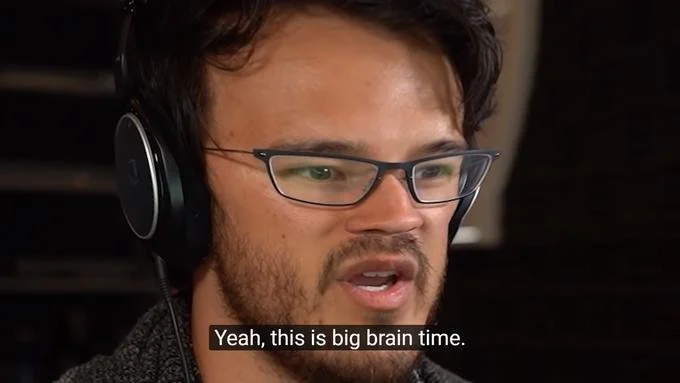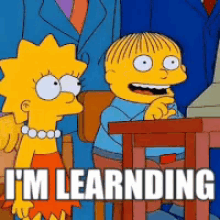Levels of Mastery
A key element of successful recruiting is to effectively assess a candidate’s mastery of their work. But often, we don’t really have a developed understanding of the different levels of mastery. How are we to determine mastery if we don’t even have a standard of assessment.
After talking to thousands of candidates about their mastery of their work, I developed my own levels of mastery which I will share with you in this article. While this will certainly be useful for hiring teams when assessing mastery, this breakdown should also help everyone in their own understanding of not only their own level of mastery, but provide an insight on what you can strive for to reach those higher levels.
Overview
Before we dive into the levels of mastery themselves, I will share with you some key terms that will be important for understanding how to conceptualize the difference between levels. I will then break down each level of mastery, starting with the most basic and finishing with the highest. In each level, I will give a basic explanation of what constitutes that level of mastery and then provide some examples to help illustrate these different levels more clearly.
A quick overview of the levels of mastery is as follows.
Learning - Before being able to do anything in a discipline, one must first learn the basics. Someone at this level does not have the ability to execute any instructions, let alone understand the philosophy behind their work, and is solely focused on learning how to operate.
Following - At this level, one can follow instructions but will require guidance for anything outside what they have been taught. They can explain what they do, but not why they do it.
Understanding - Someone at this level understands the why behind the what. They have been taught the philosophy behind the instructions or the strategy, but do not yet know how to apply this new philosophy to navigate new areas.
Applying - At this level of mastery, one uses their understanding of the philosophy of their profession to decide what known strategies to follow. They are adapting to new situations with known solutions, but not yet creating their own strategies.
Pioneering - At this level, one is in unmapped territory and must use their understanding of the philosophy of their discipline and experience with different strategies to come up with new custom strategies. This level of mastery is creative and predictive.
Standardizing - At the highest level of mastery, one is not just creating new strategies, but creating and sharing their own advanced philosophy for how to navigate new spaces.
Key Terms
Strategy and Philosophy
I break down the knowledge of mastery into two parts: strategy and philosophy. Strategy is the what or the how and philosophy is the why. You can think of strategy like instructions or methods and philosophy as the rationale or rules behind them. We will see that this distinction is important in mastery as it is often easier to know what works than to know why something works.
We will also see there is an interesting relationship between strategy and philosophy. We often learn strategy before philosophy, but later, we can develop new strategies from old philosophies and then new philosophies from successfully trialed new strategies.
Solved and Unsolved Space
If you are familiar with Chess, you probably have heard people talk about how much of Chess is “solved”; meaning that the game has been played for so long that the opening and even middle of the game has a set of known best strategies. To become competitive at the highest level in chess, one must spend years studying the existing strategies before you get to a point where you are playing games that haven’t been played before.
This is a universal aspect of all disciplines, it is just a matter of where this line between solved and unsolved is. When we think of mastery, we always will start in solved space, learning the strategy and philosophy of others who came before, before we can move into higher levels of mastery where we are exploring and creating without precedent.
Levels of Mastery
Learning
Before one can even begin to be proficient in a discipline, they must first learn the basics. Things like terms and tools. At this level one could not be expected to operate without close guidance and would not be able to teach anything about the discipline. I would say this isn’t even really a level of mastery as it is a necessary prerequisite to the path of mastery.
Examples of Learning
If you are going to even play a game of chess, to begin your journey of mastery, you must first learn the rules and how the pieces move.
Following
The most basic level of mastery is Following. This is when someone can execute strategies, the what, but does not yet understand the philosophy, the how. When asked to explain what they do in their field, someone at this level will be able to give step by step instructions, but would not be able to dig deep into the reason behind why. They are following the strategies of others who have come before them and learning how to execute effectively.
Examples of Following
In cooking, once you understand the basics of the ingredients and the tools, you can cook following basic recipes. You will probably not want to deviate from the ingredients or the methods because you don’t yet know why those ingredients and steps are important and you risk making a mistake if you do.
Similarly, if you were working on mastering an instrument, at this level you can read and play music, but you do not know why the notes are arranged the way that they are or what makes different styles of music distinct from each other.
Understanding
As one becomes proficient in following strategies and methods, the next step is to learn the philosophy behind them. Depending on the discipline, one might learn the philosophy alongside the strategy, but it is not necessary. When asked about their discipline, someone at the Understanding level of mastery would not only be able to tell you what steps to take by why those steps are taken.
Examples of Understanding
In music, Understanding would mean knowing music theory. Not only being able to play notes, but understanding that the notes fit together because they belong to the same scale. You might be able to tell if notes are wrong or recognize what makes different genres distinct.
In cooking, someone at this level would understand why certain ingredients go together or why certain steps need to be taken to prepare a dish.
Applying
As one solidifies their understanding of the philosophy behind their discipline, they can start to pick and choose different strategies based on the needs of the moment. It is important to note that they are still using solved strategies they have learned, but it is because they understand the philosophy that they are able to decide what strategies are appropriate given the situation.
At this level of mastery, someone would be able to explain different strategies to use based on the situation. They are using their understanding of their philosophy to choose which strategies are best suited.
Examples of Applying
If you were playing poker, this is the level where you are starting to think about the state of the game, how your opponent has played their hand, and what strategies you have studied would be a good choice in the given situation. You are using your understanding of poker philosophy to make decisions on what strategies to use.
In cooking, you might be in charge of cooking for an event, and here you are choosing the dishes to make based on what you know pairs well together or what would be appropriate for the situation. What is in season, or what these types of dinners like to eat.
Pioneering
At the pioneering level of mastery, one is venturing into unsolved space and creating new strategies based on the philosophy they learned and the experience they had using known strategies. They are also starting to bend the rules of their disciplines philosophy and testing the limits and viability in new ways.
Someone at this level would be able to create new strategies from scratch based on their experience and knowledge of their disciplines philosophy.
Examples of Pioneering
A chef at the Pioneering level of mastery would be creating their own dishes. They understand the philosophy of cooking and knowing what recipes have worked, so understand what is necessary to create successful new dishes.
Musicians at this level of mastery can create their own music that is more distinct and unquie. They are trying things that are new and do not follow the rules of other genres.
Standardizing
At the highest level of mastery, one has been pioneering in new and unsolved space long enough to start to map out the space and build their own philosophy. While pioneering is about exploring and seeing what works and what doesn’t, standardizing is about taking all the strategies and methods that did work and creating a unified philosophy to help others understand the new space.
When asked to speak about their discipline, those at this final level of mastery are able to speak about new philosophies they have built based on their pioneering of strategies in new, uncharted spaces. They are effectively building out a deeper understanding of the discipline and driving it forward.
Examples of Standardizing
In cooking, once a chef has successfully created many of their own dishes, they start to develop a philosophy behind their distinct style. They have certain combinations they like to use because they have discovered they work well together. They can then build a philosophy that explains the why behind the new how.
Musicians who are at the Standardizing level of mastery have created their own unique style of music and created a philosophy that explains the common elements that structure their style. As other musicians try out this new style, they follow the new philosophy.
Conclusion
As one gains higher mastery, they move from learning established strategies and philosophies to applying their knowledge to explore unsolved space and develop new strategies and then new philosophies. When asking someone about their discipline, you can quickly tell their level of mastery simply by seeing if they are Learning, Following, Understanding, Applying, Pioneering, or Standardizing. You can also use this understanding of the levels of mastery to understand what level you are currently at in your discipline and what things you need to be doing to move to the next level.








